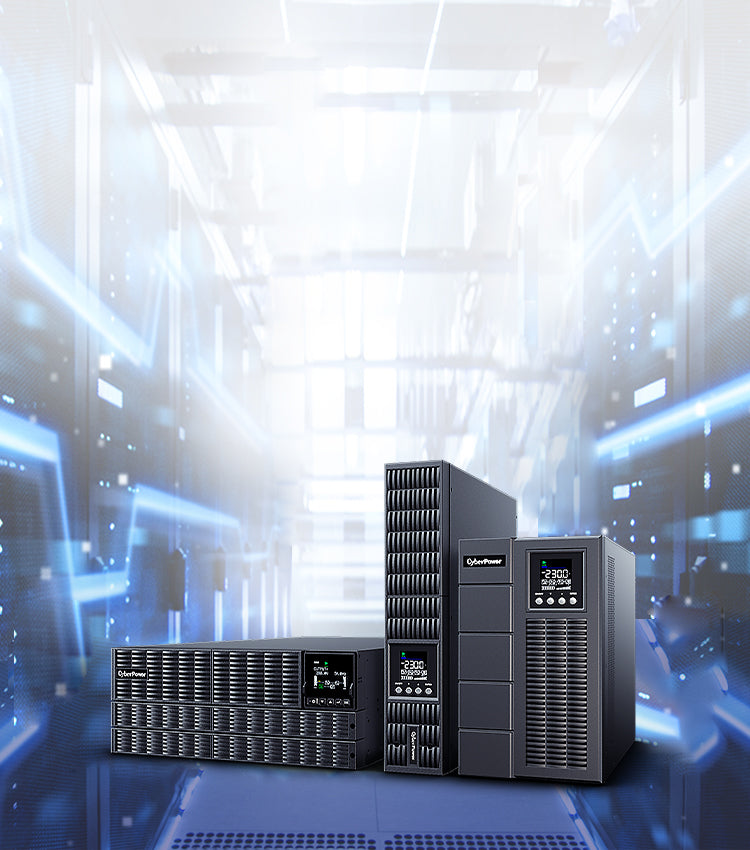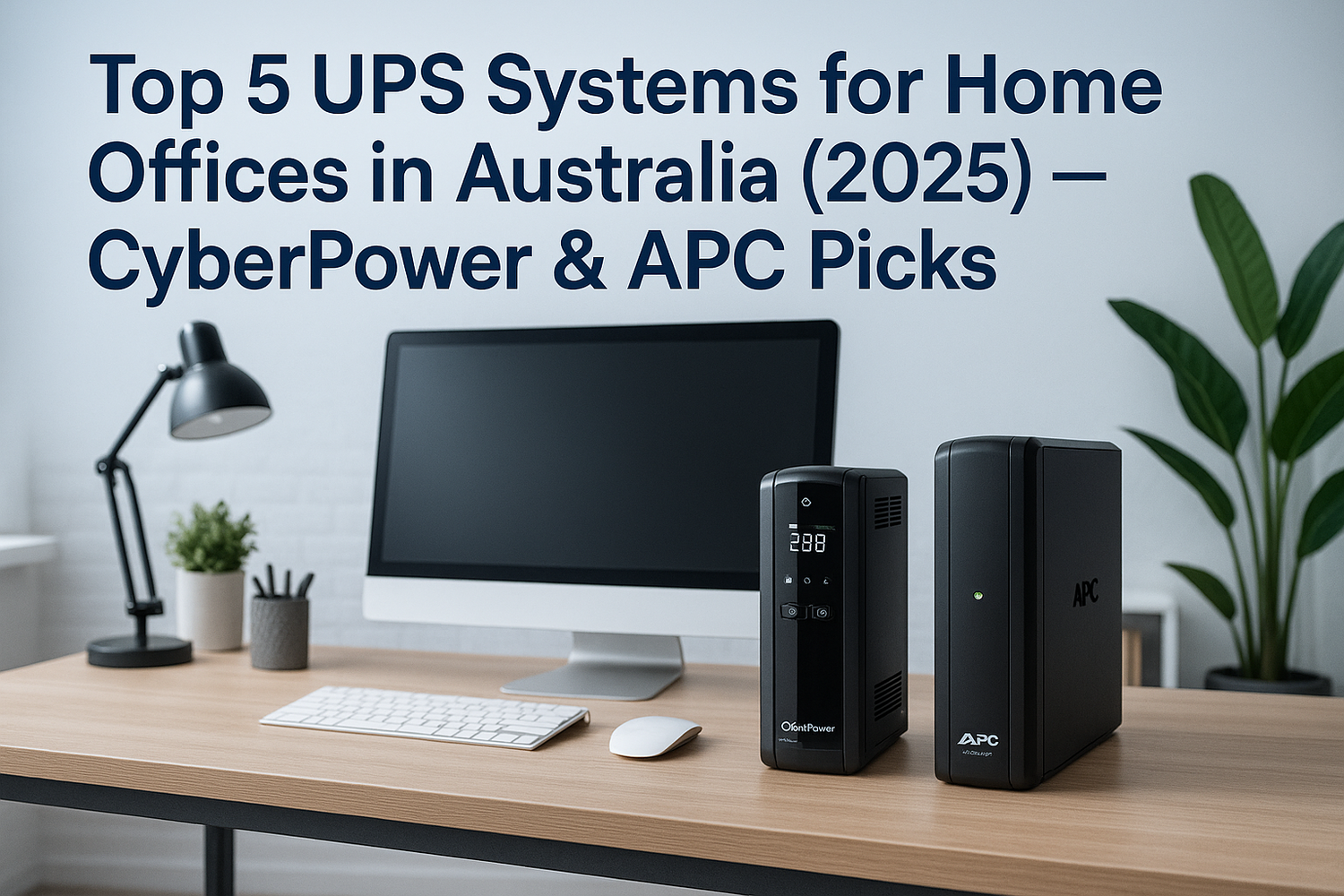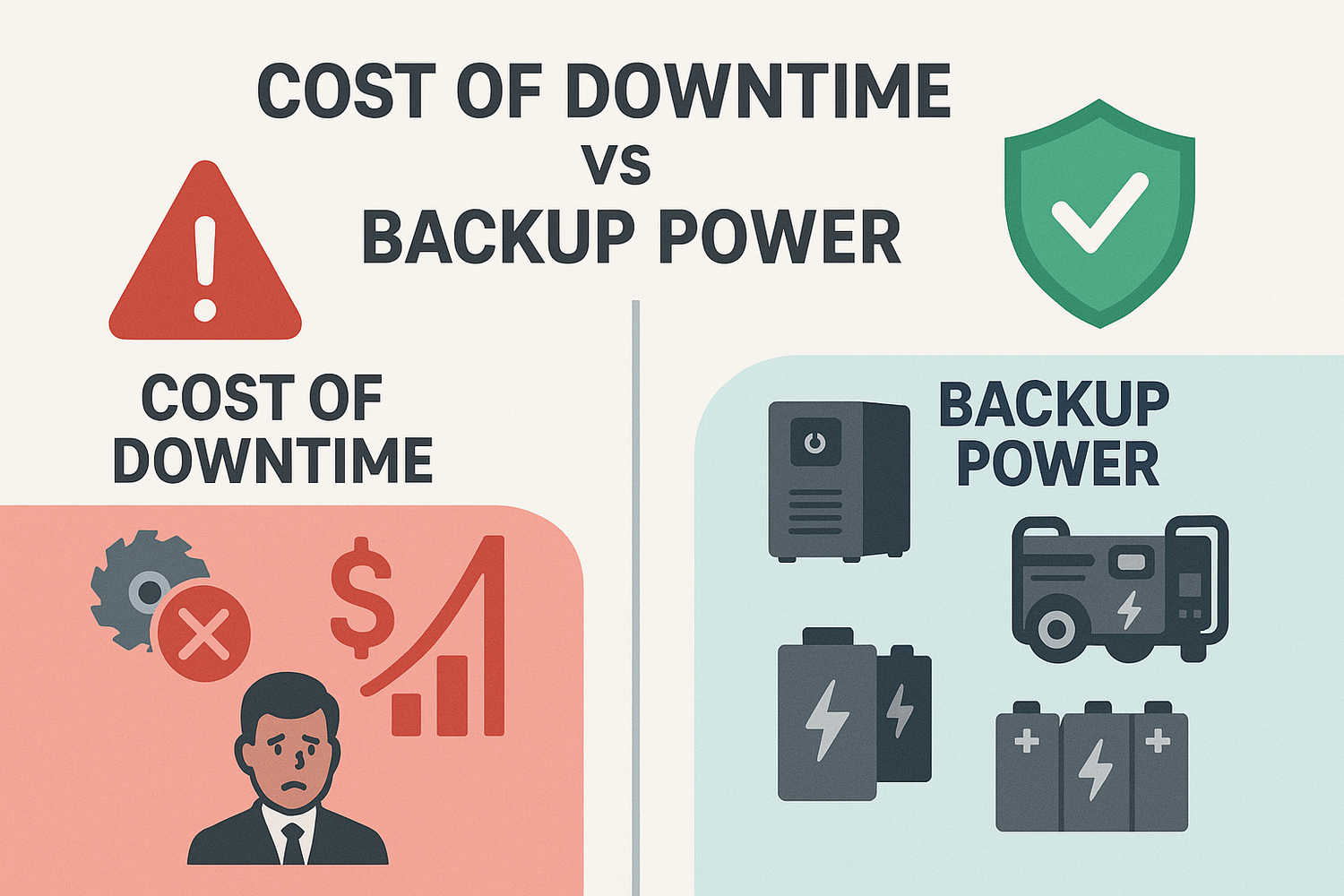In today’s fast-paced, technology-driven world, uninterrupted power is essential for the continuous operation of critical systems across various industries. Downtime caused by power outages can lead to significant financial losses, data corruption, and operational disruptions. This is where Uninterruptible Power Supply (UPS) systems play a vital role. A UPS system acts as a reliable backup power solution, ensuring that essential equipment continues to operate during unexpected power interruptions.
How Do UPS Systems Work?
At its core, a UPS system bridges the gap between the main power supply and the backup power source. It instantly kicks in when there’s a disruption, such as a power outage, voltage drop, or surge. A UPS provides temporary power through its internal battery system, giving businesses time to either restore power, safely shut down equipment, or switch to an alternative power source like a generator.
The key components of a UPS system include:
- Rectifier: Converts incoming AC power into DC power to charge the batteries.
- Battery Bank: Stores the energy needed for temporary power in case of a power disruption.
- Inverter: Converts the stored DC power from the batteries back into AC power to keep devices running.
- Bypass: Provides an alternate power path in case of system overload or failure to ensure uninterrupted operation.
Importance of UPS Systems in Various Industries
The importance of a reliable UPS system extends across many industries where uninterrupted power is critical for operations, safety, and compliance. Here are a few sectors where UPS systems play a crucial role:
1. Data Centers
Data centers house sensitive IT infrastructure, including servers, storage systems, and networking equipment. Even a brief power outage can result in corrupted data, disrupted services, and costly downtime. A UPS system ensures that critical data and systems remain operational, protecting both the business and its clients from potentially disastrous outcomes.
2. Healthcare
Hospitals and healthcare facilities rely on electrical equipment for life-saving procedures and patient care. From ventilators and dialysis machines to electronic medical records, any interruption in power can be life-threatening. UPS systems in healthcare facilities ensure that crucial equipment remains operational until backup generators take over, safeguarding both patients and sensitive data.
3. Manufacturing and Industrial Facilities
In manufacturing environments, an unexpected loss of power can halt production lines, cause equipment damage, and lead to costly repairs or wasted resources. UPS systems ensure the continuity of operations, allowing machines to complete their tasks and be safely powered down if necessary. This prevents equipment malfunctions and reduces downtime.
4. Telecommunications
Telecommunication companies depend on uninterrupted power to keep their networks running. A power outage can disrupt communication services, leading to loss of customer trust and potential revenue. UPS systems prevent outages from impacting call centers, mobile towers, and data transmission, ensuring continuous service to clients.
5. Financial Institutions
Banks, stock exchanges, and financial service providers handle vast amounts of real-time data and transactions. A power failure could cause severe disruptions, leading to financial loss and damaged reputation. A robust UPS system is essential to maintaining the uptime of critical systems, including transaction processing and security networks.
Mitigating the Risk of Downtime
The financial and operational impact of downtime can be staggering. According to research, the average cost of an hour of downtime can range from thousands to millions of dollars, depending on the industry and business size. This underscores the critical need for preventive measures.
Here’s how UPS systems help mitigate the risk of downtime:
1. Instantaneous Response
The primary advantage of a UPS system is its instantaneous response time. As soon as a disruption is detected, the UPS automatically switches to battery power without delay, ensuring no interruptions to your critical equipment.
2. Protection Against Power Surges and Fluctuations
In addition to outages, UPS systems provide protection against power surges, voltage fluctuations, and frequency deviations. This helps prevent damage to sensitive equipment and extends the lifespan of IT and electrical systems.
3. Graceful Shutdown
In situations where prolonged outages are inevitable, a UPS system provides enough time to safely shut down servers, machinery, or computers. This ensures that no critical data is lost and prevents damage to hardware that could otherwise be caused by sudden power loss.
4. Backup Power Until Generators Engage
In many large facilities, UPS systems are paired with backup generators. The UPS provides power for the few seconds or minutes it takes for the generators to kick in. This seamless transition ensures continuous power supply even during extended outages.
5. Remote Monitoring and Alerts
Modern UPS systems often come with remote monitoring capabilities. This allows facility managers to monitor power conditions and UPS status in real-time, ensuring any potential issues are addressed before they cause disruptions.
Conclusion
In an age where downtime can have devastating financial and operational consequences, the role of UPS systems is more critical than ever. From safeguarding sensitive data in data centers to protecting life-saving equipment in hospitals, UPS systems act as a first line of defense against power disruptions. By investing in reliable UPS solutions, businesses can ensure continuity, prevent costly downtime, and protect their valuable assets.
If you require assistance in selecting the right UPS for your needs, get in touch with us today - info@criticalpowersolutions.com.au





